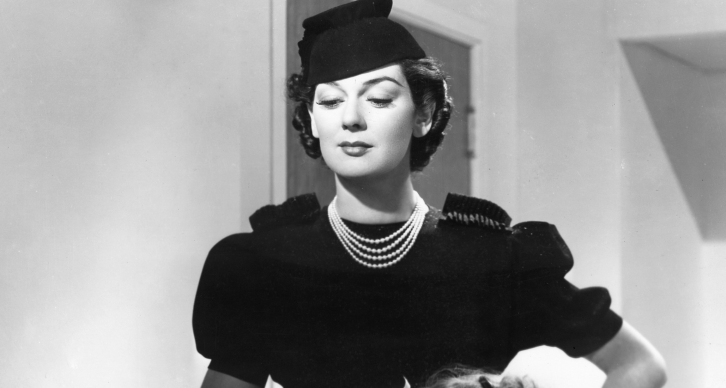Dorothy Arzner was one of the most prolific female filmmakers of the Golden Age of Hollywood—and the only female feature director employed by the studios—yet somehow her influence has been reduced to a footnote, usually to Dance, Girl, Dance. Many of Arzner’s films are unavailable or available only in poor public domain prints. Some inroads have been made, however, in finally giving Arzner her due, and the Criterion Channel this month features three of her films: the ubiquitous Dance, Girl, Dance, Christopher Strong (a nearly pre-Code Hepburn vehicle), and Craig’s Wife, the second cinematic adaptation of the 1925 play of the same name (the third would be Harriet Craig, which I reviewed earlier in this column). Craig’s Wife might look like a typical “women’s picture,” adapted by a female screenwriter and directed by the only major female filmmaker in the studios, but it has a subtlety to its depiction of a domineering wife when the narrative focuses on the experience of a woman who believes her only value is in being a possession.

Rosalind Russell is Harriet Craig, a wife who runs her household, and her husband Walter (John Boles), with an iron fist. Harriet values her home above people, and any invasion of her privacy, any alteration of her home, provokes her to icy rage. Walter comes to see the less than stellar aspects of his wife’s personality when she returns from a brief visit to her dying sister to discover that her husband has been out with his friends, that Mrs. Frazier (Billie Burke) has been sending them flowers, and that Aunt Ellen (Alma Kruger) has been undermining her authority. When a friend of Walter’s apparently murders his wife and then commits suicide, Harriet shows her true concern for her reputation above everything else.
Where Harriet Craig would delve more deeply into the individual psychology of a woman bent on controlling every aspect of her environment, Craig’s Wife is more interested in the society that shapes her. Harriet is only obsessed with maintaining her relationship with her husband insofar as it gives her a home to control—she admits early on that she doesn’t love Walter, that she married him for the security that being married offers a woman. She’s not particularly obsessed with controlling her husband, even, except insofar as what he does reflects on her. Harriet has taken the contemporary emphasis on home and hearth to its natural extreme, obsessing over every minute detail of her home, afraid of anything that would sully her reputation not because she has friends or society that she cares for, but because that is her understanding of her role as wife. The film quietly but poignantly critiques the gender roles that force women to remain so dependent on their husbands that they only have control over their own lives within the home. Harriet’s reaction is to take the home unto herself, making it an extension of her personality to a degree that ultimately damages herself and those around her.
Craig’s Wife spends time delving into feminine society in particular, and the way that women control, criticize, and comment on each other in reinforcing patriarchal norms. Harriet dislikes the neighbor Mrs. Frazier for her imagined designs on Walter; the cook Mrs. Harold (Jane Darwell) and maid Mazie (Nydia Westman) discuss Harriet constantly, at once criticizing her behavior and the way she runs her home while also acknowledging that she pays the best and provides the best job security despite her strict requirements. Harriet attempts to shape the love life of her niece Ethel (Dorothy Wilson), who is in love with one of her professors (whom Harriet, in probably one of her more intelligent moves, attempts to keep away). The nuanced understanding of female society and the gatekeeping elements in female relationships lays open one of the central critiques of Craig’s Wife, that women are pushed into roles not just by men but by other women, in which they ultimately fester and misshape themselves.
While Craig’s Wife is less psychologically nuanced than Harriet Craig, it is an essential “women’s film” that prizes female society and agency beyond male control, while also situating itself in a starkly patriarchal society. While the film stops short of total transgression, its depiction of society melds the story into something more critical. Harriet Craig is not formed by her past but by her culture, fulfilling the requisite role of the housewife to a degree that turns her into a monster of patriarchy’s own making.
Craig’s Wife is available to stream on the Criterion Channel.


